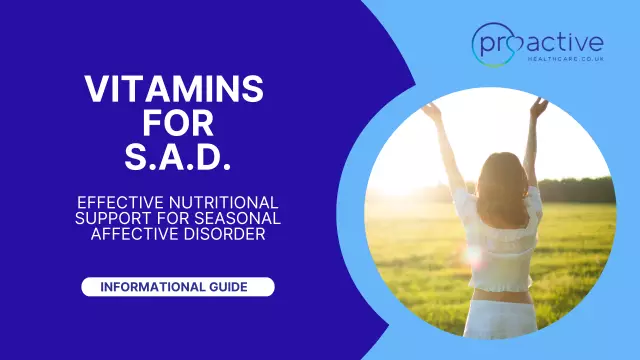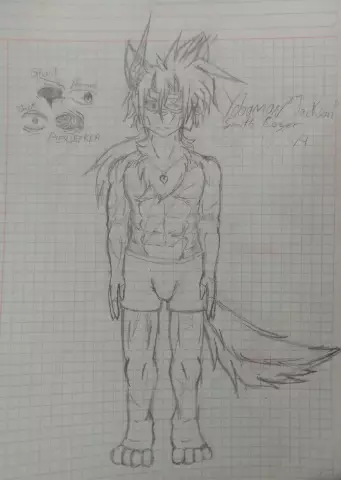- Author Rachel Wainwright wainwright@abchealthonline.com.
- Public 2023-12-15 07:39.
- Last modified 2025-11-02 20:14.
The whole truth about children's antivirals. Compare and choose …
Acute respiratory viral infections, or ARVI, cause a lot of concern for both young and experienced mothers. All children are at risk for ARVI, but they are especially prone to colds and are most severely tolerated by babies under 3 years old. If preschoolers and schoolchildren, according to statistics, get sick on average 3-6 times annually, then for children of the first years the average incidence is already 4-12 times a year. Today, it is these numbers that are considered the norm among pediatricians, for whom ARVI and ARI are the most common diagnosis in their practice.

Source: depositphotos.com
Choosing a safe and effective antiviral drug for a baby, you can, of course, completely trust the pediatrician or, having tried a dozen of remedies, find your best option. But this is a risky path, and it may well negatively affect the well-being of the little patient. The optimal solution is to carefully read the instructions of the drugs, immediately putting aside those that are in doubt. Let's dwell on some important points that will help responsible parents to thoroughly understand the issue and make the right choice.
Caution - Allergy! Special requirements for drugs for children
Unfortunately, there are very few antiviral drugs that are ideal for children. Such drugs usually have increased requirements: In addition to being effective in the treatment of influenza and ARVI, the absence of side effects, safety of use in childhood, compatibility with other drugs, these drugs must have another important quality - have a minimum of additives and components that can provoke an allergic reaction, i.e. be hypoallergenic.
Allergies to new foods are common in young children. This is due to the fact that in the first years of life, the child's immunity is only being formed and by mistake it may not recognize an unknown substance. In this case, he perceives him as a "foreign agent" and begins to fight with him, spending a lot of effort and resources so necessary to fight the virus. Outwardly, this manifests itself in the form of an allergic reaction: nausea, itching and redness, runny nose, loose stools, etc.
We analyze the composition. Thickeners, leavening agents, emulsifiers …
It is important to understand that the fewer auxiliary ingredients in the composition (not to be confused with complex antiviral drugs, where several active substances give a synergistic effect), the better for the child's body. The table below lists the most popular supplements for children's antiviral drugs.

Among the preparations presented on the shelves of pharmacies , the powder Citovir-3 is distinguished by the smallest composition of excipients. Fructose (a noble form of sugar) is added to it to give a sweetish taste. Also, in some of its types, there is a flavoring (orange, strawberry, cranberry). However, today the neutral taste of Citovir-3 powder remains almost the only hypoallergenic antiviral agent developed specifically for atopic children. Another undoubted advantage of this drug is compatibility with all symptomatic agents. However, some other drugs can also boast of this (Anaferon, Anaflubin, Viferon and others).
We analyze the composition. Synthetic interferons - benefit or harm?
Allergy can be provoked not only by an auxiliary, but also by an active substance. For example, interferon- containing drugs so beloved in Russia (Viferon, Grippferon, Kipferon - see the yellow table) contain special artificial proteins, analogs of molecules that the body produces for protection - α, β, γ interferons.

This is a very powerful weapon in the fight against viruses. However, according to experts, synthetic interferons introduced into the child's body are a strong allergen. And also, under certain conditions, they are capable of damaging not only foreign antigens, in particular viruses, but also healthy cells.
In general, it is better to leave such potent drugs as a last resort and not take it without consulting a pediatrician. Also, when taking them for the first time, we recommend very carefully monitor the condition of the baby in view of the possible and unpredictable reaction of the child's body.
We analyze the composition. Homeopathy or non-medications
Some more drugs (see the gray table), both registered as a medicine (Anaferon, Aflubin) and dietary supplements (Otsilokoclium), are classified as homeopathic. All over the world, homeopathy is recognized as ineffective and insufficiently scientifically substantiated. Indeed, it is difficult to call a drug a drug that is almost 100% sugar and additives, with an active ingredient fraction of 1/10 15 or less.

Scientists explain some of the improvements that patients sometimes note when using such "drugs" by self-hypnosis or, scientifically, the "placebo" effect. However, it is impossible to observe this effect in babies, due to the lack of opportunities to influence their own perception of reality. Therefore, we recommend not experimenting on your own children and not wasting money, but immediately "brush aside" all homeopathic remedies.
Age restrictions. It is impossible - it means it is impossible
Some antiviral drugs presented in pharmacies are simply not suitable for young children - they are prohibited from prescribing to babies under the age of 2, 3 and even 4 years old (see the red table). Why? Most often for security reasons. Children's metabolism is accelerated, babies react much stronger and more sharply to medications. Perhaps the drugs have exceeded the dose of the active substance permissible for this age or their effect on the child's body has not been studied enough.

Another possible reason is the unsuitable form of the drug for the child - tablets. In children, due to anatomy, a narrow larynx, and with ARVI, edema is added to this. It is difficult for children from 1 to 3 years old to swallow tablets, capsules and even thick syrups. When they are taken, gag reflex and coughing often occur. In addition, in tablets, for the sake of their shape and consistency, many additives, fixers, emulsifiers are used.
Antiviral drugs. Looking for the perfect candidate …
There are only four drugs left on our list (see green table). Two of them (Tamiflu, Orvirem) affect exclusively the influenza virus, Imunal, and the previously mentioned powder Cytovir-3 is used for any ARVI, because stimulate the baby's immunity, helping the body to cope with various viruses on its own. Some information about each of the drugs.

Unfortunately, the once very popular Remantadine (the first from our list exclusively anti-influenza drug - Orvirem) has been unable to cope with new mutated virus strains for several years. Today, both experts and many parents question its effectiveness.
Oseltamivir (Tamiflu) fights the flu virus well. It has been proven that when it is used, the duration of the disease is reduced by half a day (from 7 to 6.3 days). However, due to the frequent and rather serious "side effects" (nausea, vomiting, headache, renal and psychiatric disorders), doctors recommend to be as careful as possible when prescribing it to young children.
Echinacea (Immunal) preparations are widely used in North America and Europe for the prevention and treatment of colds. The three main components of Cytovir-3 powder (sodium thymogen, bendazole and ascorbic acid) have also been well studied and have long been used in medicine. It is their combination in a certain dosage that provides an effective complex therapeutic effect of this drug for any ARVI.
Interestingly, in 2013, scientists conducted a comparative randomized study of the efficacy and safety of Cytovir-3 and Immunal for ARVI in children. It turned out that both drugs can effectively stop a viral infection within 2-3 days. At the same time, the results of dynamic monitoring of the infectious process indicate the advantage of Citovir-3 powder. The conclusions of the scientists are quite consistent with the opinion of the majority of practicing pediatricians who awarded Tsitovir-3 the nomination "Immunomodulator of choice in the acute period of respiratory infection in frequently ill children" based on the results of the Russian Pharma Awards 2016 professional award (open voting of doctors on the Doctor at Work portal).
Antiviral drugs. The choice of responsible parents
Often, parents do not pay attention to another important aspect - the duration of taking an antiviral drug. But some of them cope with the disease in 3-4 days, while others need to be taken 7 or even 10-14 days. You should always strive to minimize the drug load on the baby's body. Remember, the sooner the medicine will put the child on his feet, the less we will "stuff" him with both antiviral and symptomatic agents.
And in conclusion, I would like to recommend to responsible parents of babies under 3 years old when choosing an antiviral drug to be guided by the following main criteria:
- restriction on age and dosage,
- possible allergenicity of the drug,
- compatibility with other medicines,
- recommended admission period,
- the amount and composition of excipients.
The choice is yours!
Found a mistake in the text? Select it and press Ctrl + Enter.






